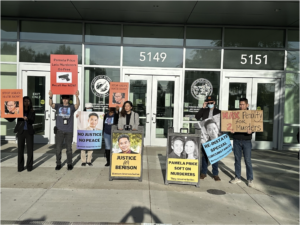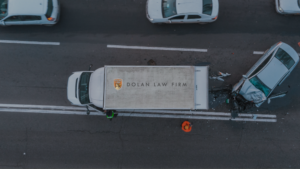This week’s question comes from Tara P. in Hayward, who writes: “The weirdest thing happened recently. I had just bought a house out of foreclosure. I was working on the interior while living there. I went away for the night to a friend’s house. When I came home the next day after work, there was a circus tent covering my house. Seriously, a circus tent. Not only that, there were signs saying “stay back, toxic gasses in use.”
My house had been fumigated while I was out! I didn’t ask for my house to be fumigated. I called the company and they said that it was my house that was supposed to be fumigated. I said no, and they read the address. They fumigated my house on an avenue when they were supposed to fumigate a house, with the same number, a couple blocks away on a court. They said that a real estate agent had paid for the fumigation. I am against the use of pesticides and chemicals. I told them to take the tent off my house but they said they couldn’t for three days until the chemicals dissipated.
Thank God I had dropped my kitten off at the vet’s for boarding. They said that they didn’t have signed paperwork as the job was phoned in by a Realtor they have worked for before. I had to go to a hotel until my house was untarped three days later. I had to buy some work clothes and a pair of shoes as my clothes were all sealed up inside the tent. Since then I have thrown away all of the food in my pantry, sent my clothes to the cleaners and I am having a green company come in and do a top to bottom cleaning. I told the fumigators that I wanted to be compensated for this inconvenience and expense, they said that they were going to give me the fumigation for free. This is not acceptable. What rights do I have?”
Tara, what a shock! I will answer your question with the assumption that the fumigation contractor was licensed. Licensed fumigation contractors are bound by the regulations as stated in the Business and Professions Code. Contractors have an obligation to confirm the premises are vacant, as well as locked and barricaded, so that no one can enter during the period of fumigation. Fumigation must be done under the direct supervision of a licensed contractor. Direct supervision means that the license holder must be present at the site of the fumigation during the entire time the fumigants are being administered, the time ventilation is commenced, and at the time property is released for occupancy.
The law requires that a fumigation contractor shall have in his possession a form, signed by the occupants of the property to be fumigated, verifying that the occupants have been informed of the nature of the fumigation including the fumigant(s) to be used, the active ingredient(s), have received the health cautionary statement required under the Business and Professions Code, been advised that a lethal gas will be used in the building on specified dates and that it is unsafe to return to the building until a certification for re-entry is posted, and that the occupants have been given the contact information for the main fumigating contractor.
These statutes are designed to protect the owners of homes being fumigated as well as their neighbors and members of the public. They are also designed to make sure the right house gets fumigated as there have been cases of death to people and animals because of improper fumigation. Given the company’s violation of the statutes requiring notification of owners, and confirmation of receipt of such warnings, the fumigation contractor is per se negligent and, therefore, liable for any reasonably foreseeable damages they have caused. Under the doctrine of negligence per se, the failure of a person to exercise due care is presumed if: a) the party violated a statute, ordinance or regulation (law) of a public entity; b) the violation proximately caused death or injury to person or property; c) the death or injury was of the type the law was designed to prevent; and d) the person suffering the death or injury was one of the class of persons for whose protection the law was adopted.
Here, they violated a law that was designed to protect people like you. It is foreseeable that people who have their houses fumigated involuntarily would have to stay elsewhere, and would chose to have their belongings cleaned of any residue. If you have an aversion to setting foot in the house, and feel it must be sold because of it being fumigated, a jury would have to decide whether such a decision is reasonable under the circumstances. At a minimum, the contractor should pay for your costs associated with lodging, cleaning, and replacement of food items, toiletries, etc.
I also suggest that you file a report with the Department of Consumer Affairs Structural Pest Control Board at (916) 561-8708. They can issue fines of up to $10,000. However, if the contractors, or their insurance company, refuse to reimburse you for your hotel, cleaning and other bills, then hire a trial lawyer to pursue them for both negligence and trespass.










